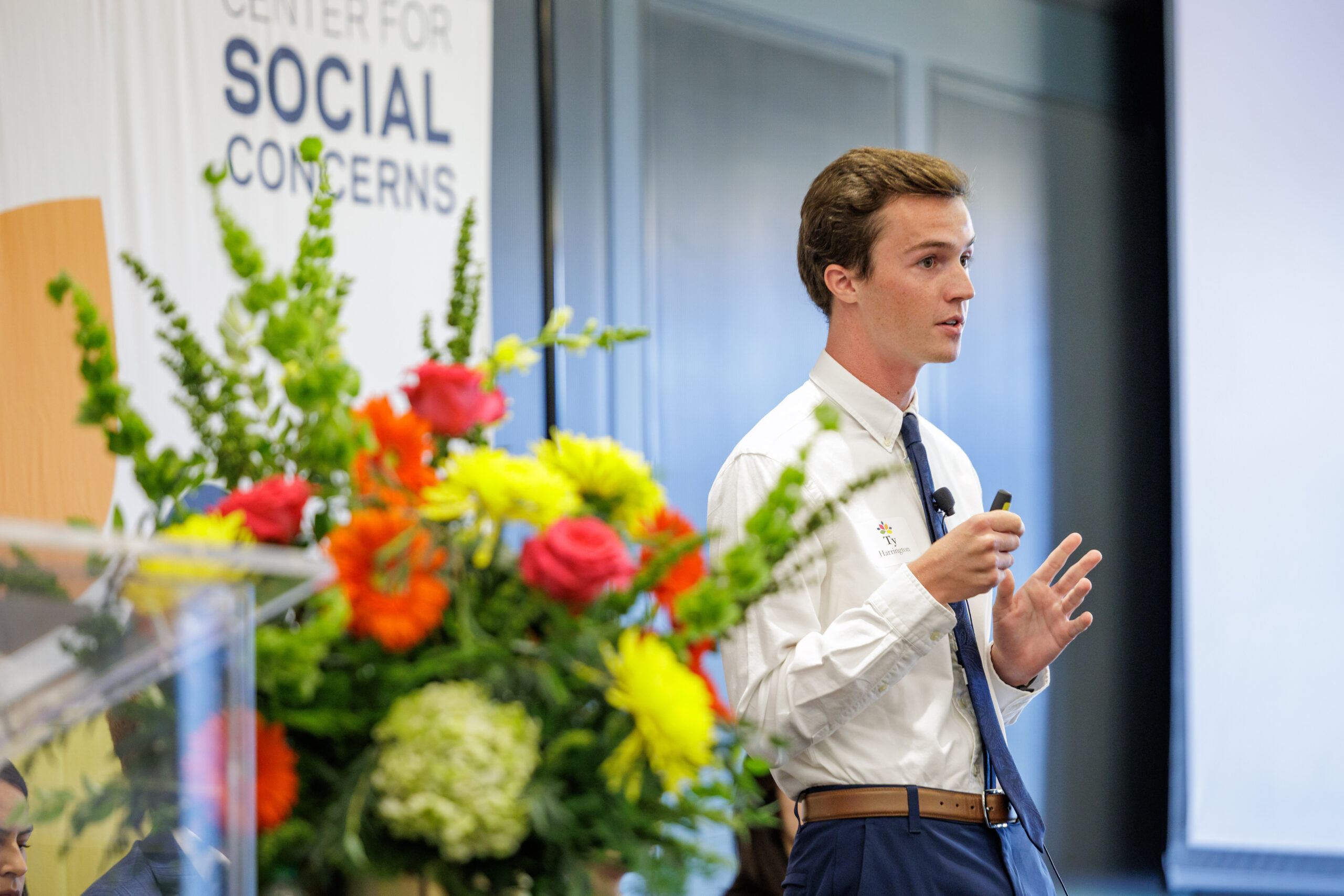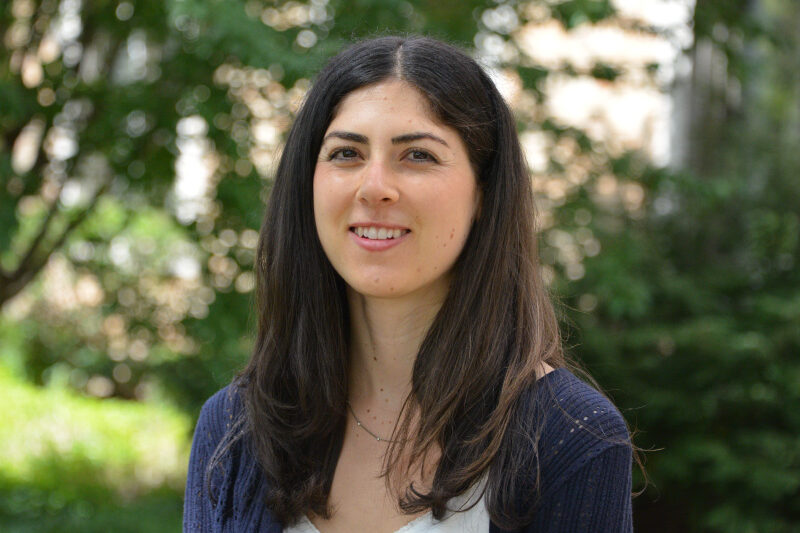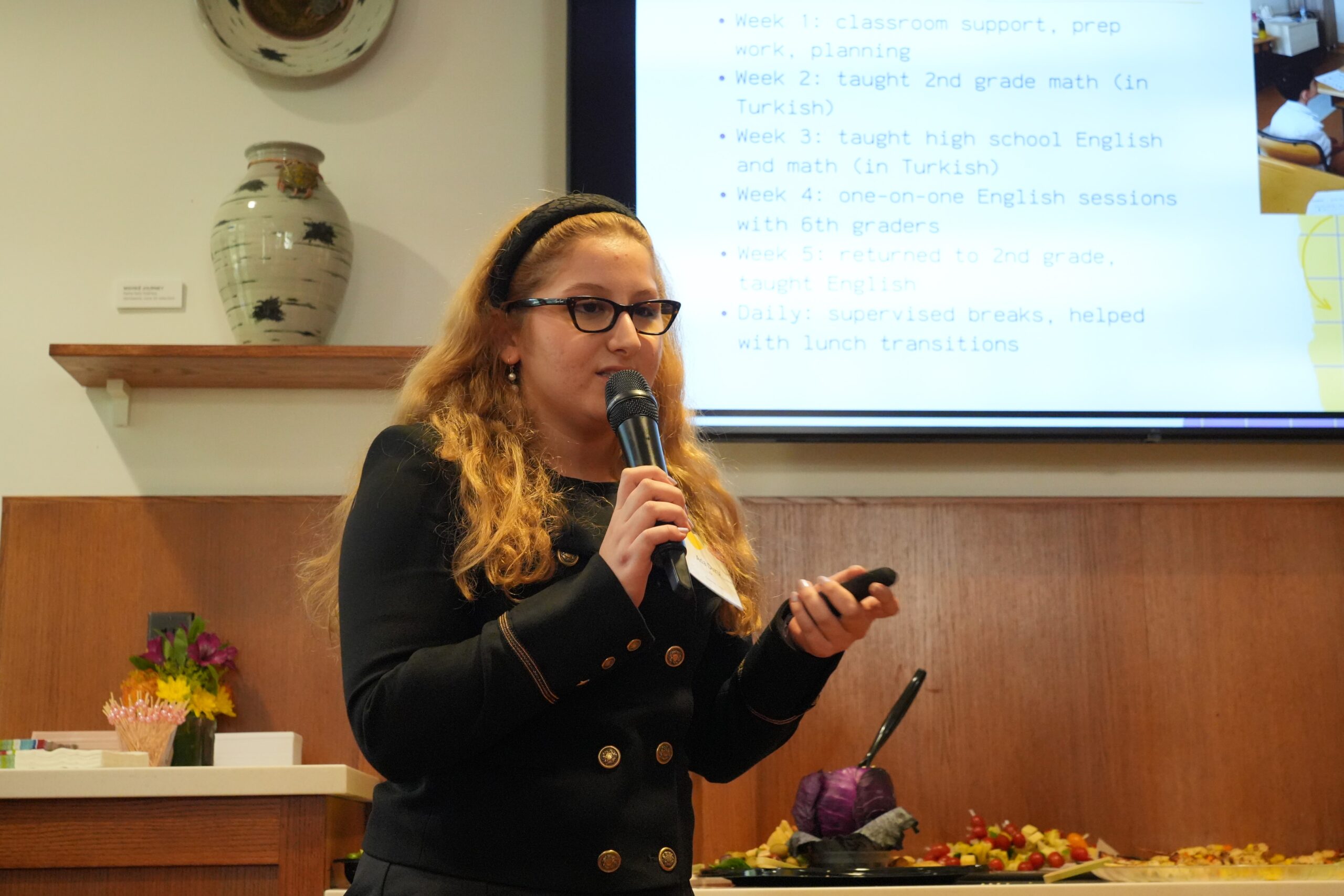Collaborating for the Common Good
Institute for Social Concerns hosts interdisciplinary Crime & Justice Working Group
March 17, 2025
Forty-five people are packed into a classroom in Geddes Hall for a gathering of the Crime & Justice Working Group at the Institute for Social Concerns. They include undergraduate and graduate students, postdocs, and faculty members from schools and colleges across the University of Notre Dame. Joining the faculty and students are practitioners and partners from the South Bend community, who not only inform the research of the group but also are already involved in studying and unpacking the issues in the community. What unites them all is a passion to develop collaborative research capable of transforming the criminal justice system in the United States.
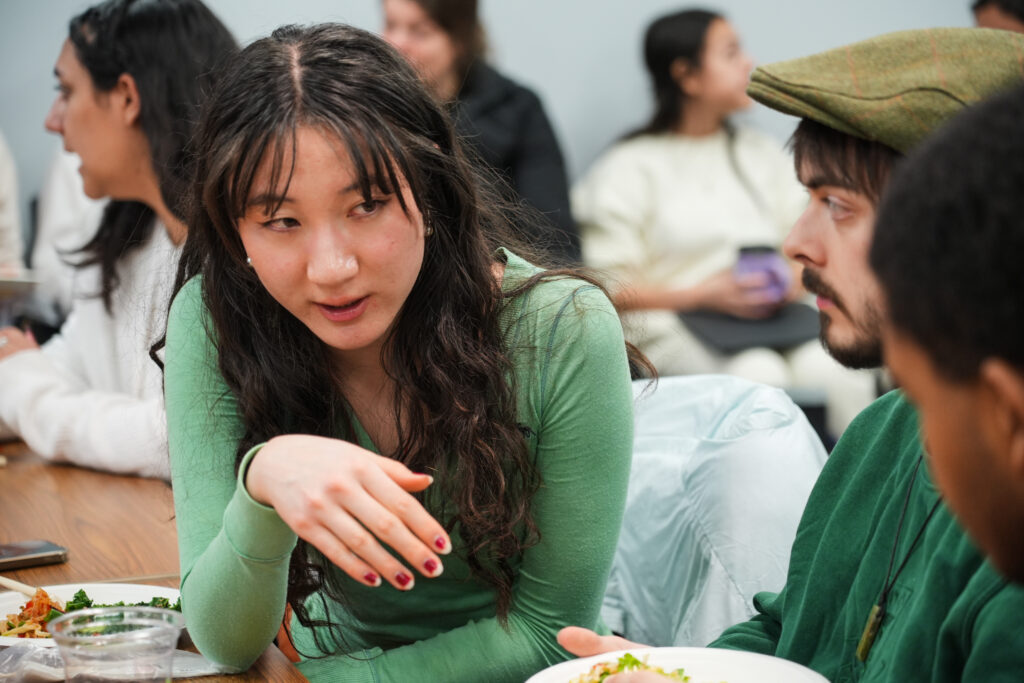
Created through a collaboration among Pam Butler, associate director of the Gender Studies Program and faculty fellow of the institute; Anna Haskins, the Andrew V. Tackes Associate Professor of Sociology and faculty fellow of the institute; and Samuel Sokolsky-Tifft, postdoctoral research scholar at the institute, the working group emerged from a grant from the College of Arts & Letters and the Institute for Scholarship in the Liberal Arts.
“This working group is amazing,” said Haskins. “I have been so pleased by the consistent community of the group. It reinforces the need for creating this space—a space to regularly engage around these issues and topics and to be in community together.”
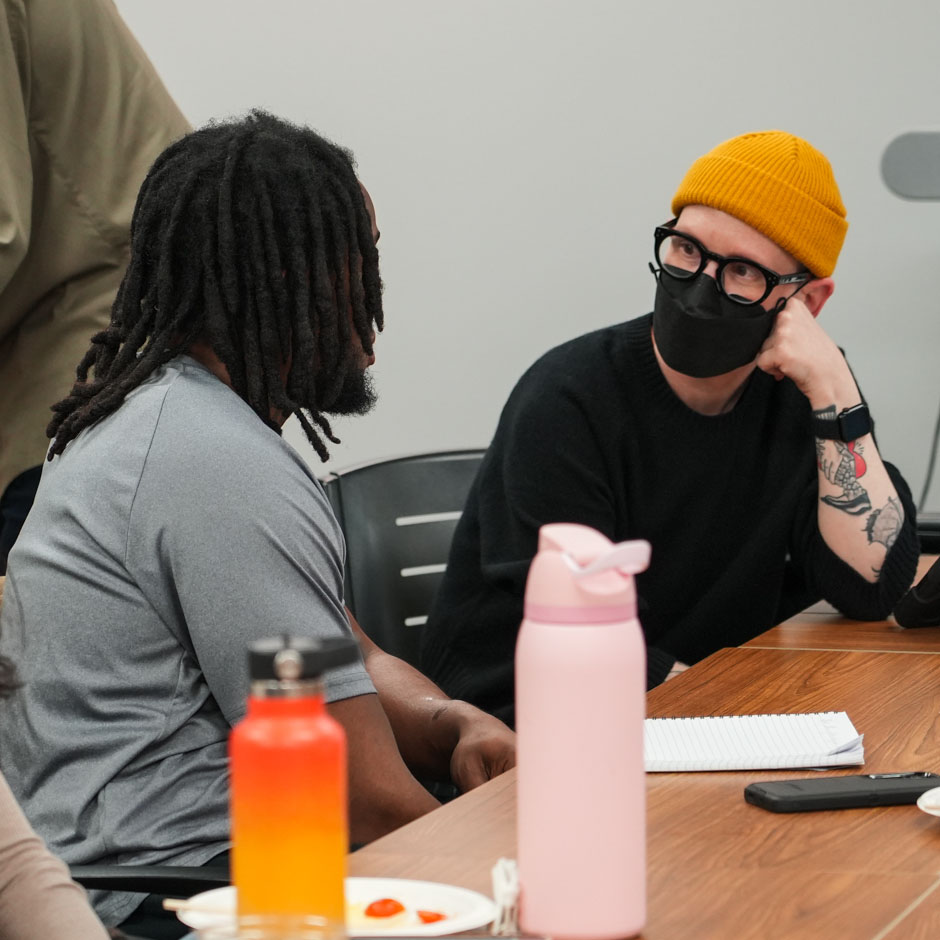
This meeting in March is the sixth of the working group, which gathers once a month throughout the academic year. At each meeting they discuss a different topic at the intersection of crime and justice, such as new developments in restorative justice work or winnable criminal justice reforms. These discussions and the interdisciplinary connections formed in the group serve as a catalyst for collaborative research.
Community partners also present their work in the monthly meetings, which spawns further community-engaged research. In February, Tommy Shannon presented insights from his work with Life After Conviction, the non-profit organization he founded after his own transition from incarceration to freedom. His presentation led members of the group to the realization that there is no scholarship that differentiates different forms of reentry—from coming out of jail after a few days or weeks to coming out of prison after 30 years. Shannon, Butler, Sokolsky-Tifft, and Scott Jackson, the Mary Irene Ryan Family Executive Artistic Director of Shakespeare at Notre Dame, are now applying for funding to study the unique challenges various forms of reentry present.
“I like to think that the voice of the formerly incarcerated is something that needs to be present during these conversations,” Shannon stated, “because we can theorize best practices and what the problems are, or we can listen to the people who are living through these problems and take their input and let them help us evaluate potential solutions.”
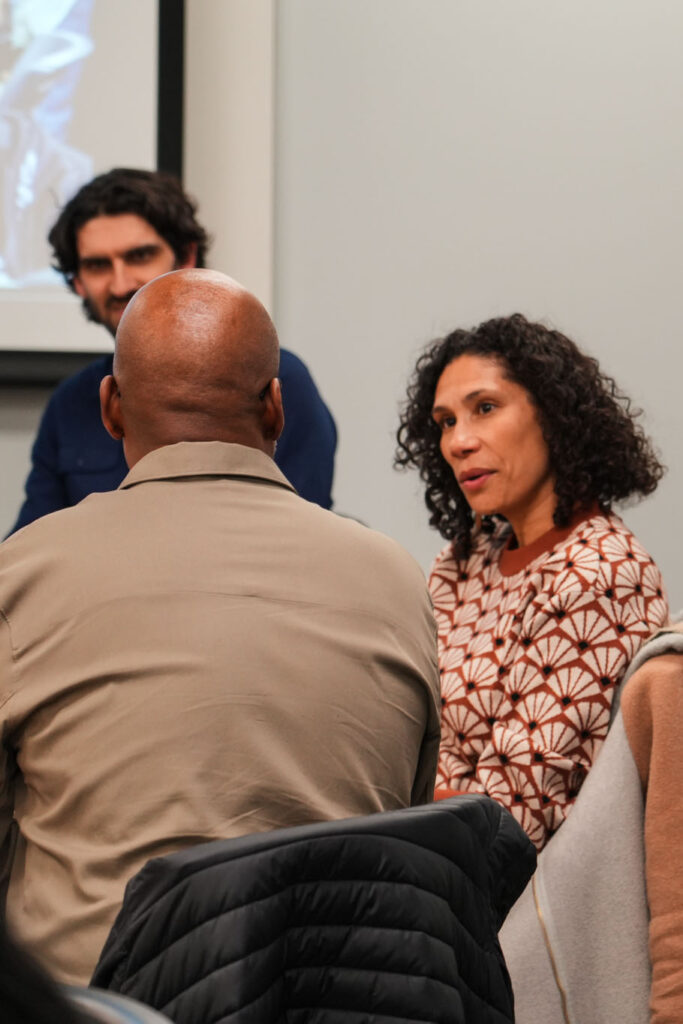
The group meets in conjunction with the institute’s Mass Incarceration Research Lab, a year-round workshop organized by Sokolsky-Tifft where faculty and students, together with community members, develop research with a goal of providing evidence-based policy recommendations for change. The knowledge and experience of community members often drives the research, and the working group creates an important venue for this wisdom. After community member Dalila Huerta presented on her Restorative Justice Collaborative Hub in the working group, for instance, students in the lab were able to bring restorative justice perspectives into research projects on bail and plea bargaining reform.
“It’s exciting for students to see people who are devoting their lives to this work in various ways,” Sokolsky-Tifft said, “and they’re getting ideas that then feed into the writing and research they’re doing in the lab.”
One outcome of this lab is research students generated out of the working group that has facilitated a project headed by Haskins and Sokolsky-Tifft titled “Educating Beyond Recidivism: A Multistate Analysis of the Holistic Impact of Education in Prison.” This project looks at civic engagement and flourishing in formerly incarcerated students in both Indiana and Massachusetts.
The working group has two more gatherings this semester. On March 24, Debra Stanley of Imani Unidad will be leading a discussion on incarceration and community healthcare. On April 28, David Frank, president of the Indiana Abolition Coalition, will lead a conversation on ending the death penalty in Indiana. Those from Notre Dame and the broader South Bend community whose work intersects with crime and justice are welcome to attend. While there are a range of political approaches and commitments represented in the group, Butler notes that they are all in agreement on some fundamental values that are countercultural in this political moment, including “the idea that nobody is disposable” and that “people who have been convicted of even the very worst kinds of crimes are still people and have inherent value and dignity.”
Core Carceral Studies Group Members
Pamela Butler, associate director of the Gender Studies Program
Anna Haskins, Andrew V. Tackes Associate Professor of Sociology and associate director of Notre Dame’s Initiative on Race and Resilience
Samuel Sokolsky-Tifft, postdoctoral research scholar at the Institute for Social Concern
Ricky Herbst, term teaching professor of film and cinema program director at the DeBartolo Performing Arts Center
Katherine Walden, assistant teaching professor of American Studies
Karla Badillo-Urquiola, the Clare Boothe Luce Assistant Professor of Computer Science and Engineering
2025 Crime & Justice Community Grant Awardees
The working group awarded six Crime & Justice Community Grants to community partners to help these organizations incubate and jump start research projects that best meet the varied needs of their clientele. Recipients this year include the following:
Cheryl Ashe, Dismas House
Malcolm Coates, Group Violence Intervention
Dalila Huerta, Restorative Justice Collaborative Hub
Tommy Shannon, Life After Conviction
Debra Stanley, Imani Unidad
Jeff Walker, Beacon Resource Center
Related Stories
-
Social Concerns Summer Fellow returns to India for ongoing research
-
ReSearching for the Common Good: Solbee Kang
-
Bridging worlds through art—Kyla Walker joins institute as international poetry justice fellow
-
The power of encounter—RISE Hometown prepares incoming students for learning in service of justice at Notre Dame
-
The beauty of everyday democracy—Institute convenes scholars, practitioners, Luke Bretherton for democracy conference

